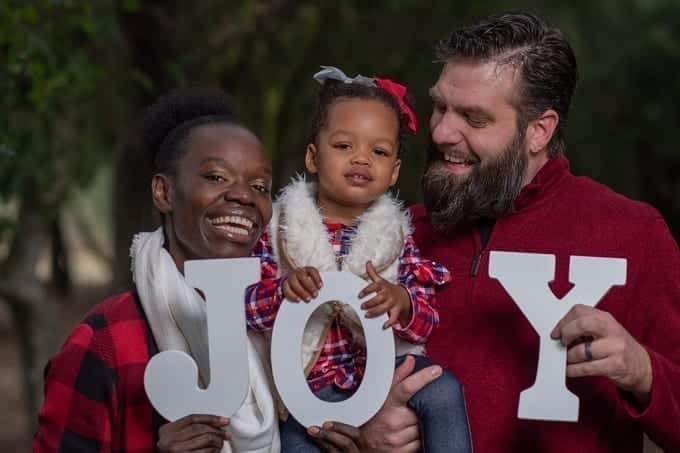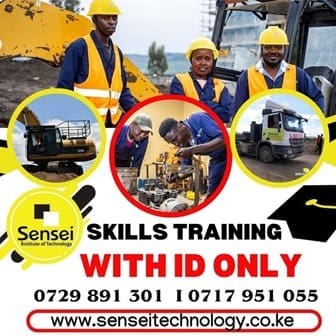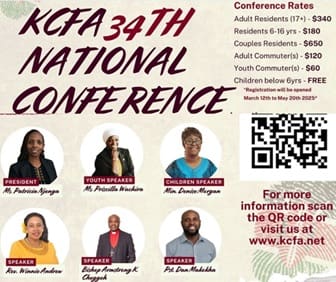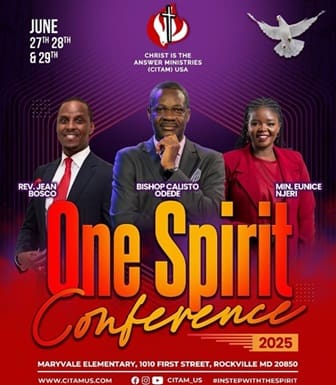
Every night—between picking out pajamas and brushing her teeth—Huldah Momanyi-Hiltsley sits down with her two-year-old daughter, Jaydah Rae, and says, “You’re strong. You’re powerful.
You’re smart. And you are going to change the world in Jesus’ name.” She acknowledges the value Jaydah Rae holds in her small frame and prophesies all that she can become, hoping their nightly routine empowers her daughter all throughout her life.
Because that’s exactly what Momanyi-Hiltsley longs to do: empower others to claim their full potential, especially women of color and the immigrant community in the Twin Cities.
An immigrant herself, Momanyi-Hiltsley was born in Kenya and came to the United States as a nine-year-old.
She grew up in the Twin Cities as the daughter of a pastor and attended Bethel, triple-majoring in business, political science, and reconciliation studies. She was so inspired by Bethel’s preparation to become a transformative leader that she returned to earn her MBA in Global Business Management.
“For me, the call to serve the immigrant community is part of that transformative leadership,” Momanyi-Hiltsley says.
“Going through Bethel undergrad and then Bethel grad school was something that really helped me develop a deeper understanding of what transformative leader looks like. I could never be more grateful for everything I took away from Bethel.”
Momanyi-Hiltsley with her daughter, Jaydah Rae, and husband, Bart.
When she graduated with her master’s, Momanyi-Hiltsley and her husband, Bart, chased the sunshine by moving to San Diego. She became a data privacy corporate analyst for Dexcom, a company that creates continuous glucose monitoring technology for individuals with diabetes.
And while Momanyi-Hiltsley loves her job, her true passion is empowering communities of color—especially the immigrant communities—to have access to knowledge and resources needed to thrive and be active members of their communities.
As her family prepared to move across the country, Momanyi-Hiltsley was also considering how she could give back to her community in Kenya.
Prayerfully, she examined her heart, passions, and resources to see where God was leading her. She realized that empowering women and girls in Kenya was her calling.
Her personal experience had led her to appreciate the opportunities America had to offer her as a woman of color. Momanyi-Hiltsley appreciated her privilege of being able to go to school and make a better life for her and her family.
She also recognized that many women in her home country did not have the same privileges and opportunities.
“I come from a culture where, when you talk about women empowerment and when you talk about women bringing value into a community—it’s just not the norm,” Momanyi-Hiltsley says. “And because of traditions and deep-rooted cultural traits, in most cases, women are put in a box and their role defined for them.
I am a testimony of what an education can do for a woman. I have seen what a woman is capable of when she is empowered to strive toward her potential. In my culture, investing and empowering girls and women, in most cases, seems like a taboo that’s changing as time goes by, but for me it’s not changing fast enough.”
In response to a great need, Momanyi-Hiltsley created SaniNaps—a nonprofit focused on providing girls in Kenya with sanitary napkins and school supplies which are largely not accessible in rural areas.
In 2014, Momanyi-Hiltsley officially launched the project and started making connections with schools in Kenya, fundraising, and putting together sanitary kits.
They made their first trip to Kenya in 2014, distributing about 150 kits. For their latest trip in 2019, they were prepared to serve over 4,000 women and girls due to their partnership with Days for Girls International.
And while the sheer numbers for the project are important and even impressive, how they distribute these kits matters more to Momanyi-Hiltsley than the number they distributed. It’s a holistic endeavor that emphasizes empowerment, sustainability, and accountability, Momanyi-Hiltsley says.
They bring a women’s health expert to educate these girls about what it means to be a woman from a scientific point of view. When they distribute the kits, they tell the girls that they’re responsible for their own health, that they have the power to stay in school despite their periods.
“Sanitary kits are a tool to empower these girls and provide education and knowledge,” Momanyi-Hiltlsey says. “They might not have access to everything, but they will have the knowledge to make sound life decisions with just a basic high school degree.
That was the ultimate goal. With an education, a girl can change her life, her family, her community, and her world. With an education, she has the power to break the cycle of poverty.”
“Sanitary kits are a tool to empower these girls and provide education and knowledge. That was the ultimate goal. With an education, a girl can change her life, her family, her community, and her world. With an education, she has the power to break the cycle of poverty,” says Momanyi-Hiltlsey.
The goal has expanded along with the numbers. When Momanyi-Hiltlsey gave birth to her daughter in 2018, the United States healthcare providers told her to bring what made her most comfortable, like her favorite book or blanket.
In Kenya, women in rural areas have to bring their own water, food, and sheets because hospitals don’t have the basic essentials. In preparation for their 2019 distribution, they added maternity pads, additional underwear, a washcloth, and a bar of soap to sanitary kits for pregnant women so they can start this next chapter of their lives with dignity.
Her passion for giving back has opened doors of opportunities to serve people both in Kenya and in the United States.
“When God calls you to serve, He also opens doors of opportunity for you,” Momanyi-Hilstley says. “It’s a matter of whether or not you are willing to walk through those doors.” When her family moved back to Minnesota in the midst of the pandemic, she took advantage of an ideal opportunity to make sure the immigrant community has a voice.
She acknowledges that the immigrant community lacks representation in local government decision making, lacks access to vital resources, and lacks impactful participation in civic engagement—especially in light of the killing of George Floyd.
Momanyi-Hilstley was elected as the first female president of Mwanyagetinge Organization, a 501c organization that primarily serves the Kenyan immigrant community in the Twin Cities. She hopes to bring about positive change in partnership with other immigrant communities.
“The goal is to build sustainable relationships with those in power, and eventually have a seat at the table. I truly believe that if we do not proactively participate in our own growth and development, if we do not make our voices heard, we cannot complain when decisions are being made on our behalf.” Momanyi-Hiltsley says.
She was elected president in August 2020, and although she’s just getting started, she has big plans. The first step is establishing some structure and setting goals for the organization.
Momanyi-Hiltsley is excited to see how everything unfolds with Mwanyagetinge, along with the many other roles in her life—as a mother, wife, employee, founder of SaniNaps, board member of Reach for Resources, and now as a president.
She could easily become paralyzingly overwhelmed with all she has to do, but she knows she’s meant to be exactly where she is. “For me, serving others is a calling. Looking back over the years, I can testify how God has prepared me for such a time as this.
Servant leadership has become a lifestyle thanks to how I grew up and my education at Bethel. I find myself sitting here, not shocked or surprised, but amazed by what’s possible. I’m in this space of amazement and wonder at what God can do when you allow him to use you.”
By Katie Johnson
Source-https://www.bethel.edu/








